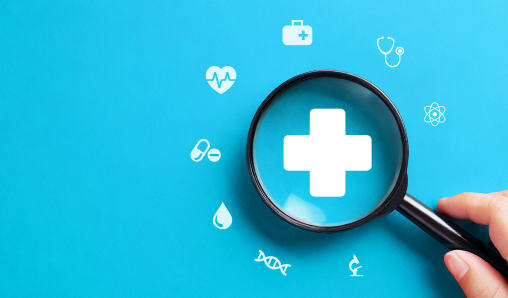- 61.4% of people with private health insurance believe they would receive better treatment in the public health system in the event of a serious illness, according to the second wave of the Health Barometer.
- More than 75% of those who have used NHS services in the last year rate the care they received positively.
- Access to electronic medical records has grown to 35%, and the use of interoperable prescriptions has reached 20.6%.
- For the first time, the Health Barometer incorporates data on the performance of diagnostic tests for a new health problem, allowing a reference to be established for its follow-up.
The Center for Sociological Research and the Ministry of Health have prepared the second wave of this year's health barometer. The study reflects public perceptions of the functioning of the public health system.
One of the most significant results of this edition is the high level of public confidence in the public healthcare system. 61.4% of people with private health insurance—either individual or through their employer—believe that, if they suffered a serious health problem, they would receive better treatment in the public healthcare system. This data highlights the role of the National Health System (NHS) as a benchmark for quality and safety of care, even among those with access to private healthcare.
52.5% of the general population positively assesses the functioning of the healthcare system in Spain, a slight decrease compared to the 53.9% recorded in the first wave of 2025. The average overall satisfaction score stands at 6.02 points out of 10, compared to 6.13 the previous year. Although these indicators show a slightly downward trend in overall perception, a detailed analysis by care level reveals high satisfaction among those who have actually used public health services.
In primary care, 78.5% of those treated rated the care received positively, compared to 82.4% the previous year. In hospital care, the positive rating reached 77.8% (81.7% in 2024), and among those who were hospitalized, it remained at 78.4% (81.4% in 2024). Emergency services received favorable ratings from 73.5% of their users, a figure stable compared to the previous year. In the field of mental health, 74.9% of people treated in the public health system stated that the care received was as expected or better.
The Barometer also shows positive growth in the use of digital healthcare tools. Thirty-five percent of the population has accessed their electronic medical record, compared to 32.8% in 2024. The use of interoperable electronic prescriptions outside the autonomous community reaches 20.6%, an increase of 1.2 points compared to the previous year. Furthermore, 52.2% of citizens have an electronic certificate, and 52.1% of those who have received primary care have had a telephone consultation, with a satisfaction level growing to 68.9%.
For the first time, the Health Barometer collects detailed information on the performance of diagnostic tests in the last year for a new health problem, and the time elapsed between the medical indication and the test. 19.2% of the adult population has had an ultrasound, 13.7% a CT scan, 12.1% an MRI, and 4.3% a colonoscopy. Colonoscopies have the longest average wait time (158 days), followed by MRIs (117 days), ultrasounds (66 days), and CT scans (60 days).
Regarding speed of access, 56.7% of ultrasounds, 50.3% of CT scans, 46.7% of MRIs, and 34% of colonoscopies were performed within one month of their request. As this is the first edition measuring this indicator, the data constitute an initial reference for evaluating accessibility to diagnostic tests in future waves of the study.
Other notable findings from the report: 17.7% of the population has needed healthcare for mental health or emotional distress in the past year. In primary care, the average wait time for an appointment with a family doctor exceeds eight days (8.85), and 71.2% report having had to wait more than a day because there was no prior availability.
The study is based on a sample of 2,318 interviews conducted during July 2025.
Esta información puede ser usada en parte o en su integridad sin necesidad de citar fuentes.
C/ Montalbán, 8
28014 Madrid
Email: comunicacion@cis.es
Tlf.: 91.580.76.25
Fax: 91.531.81.31

